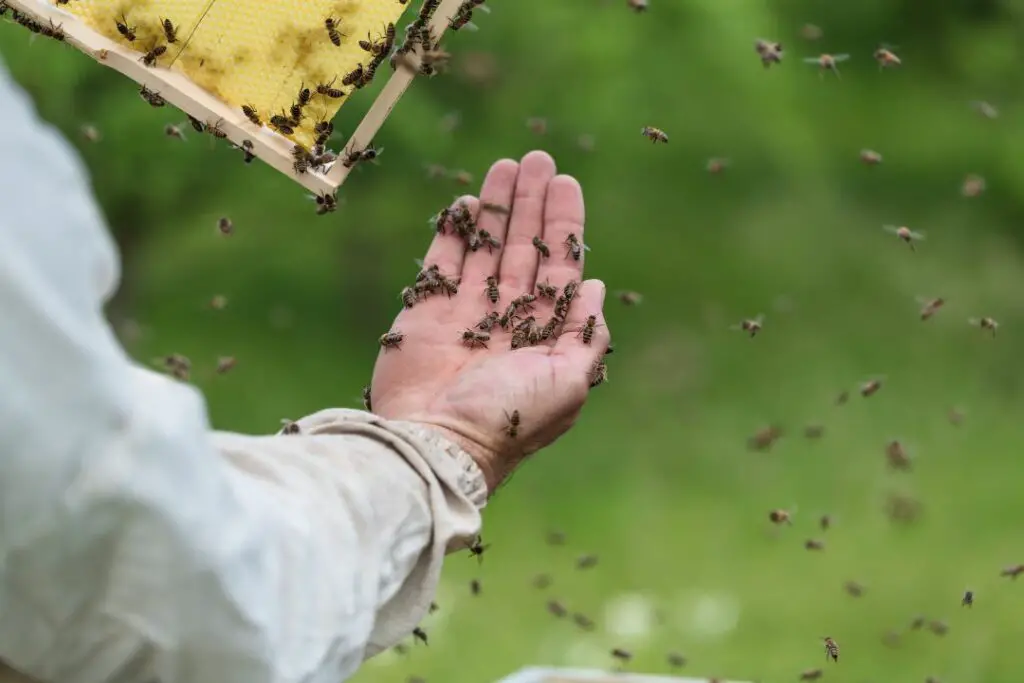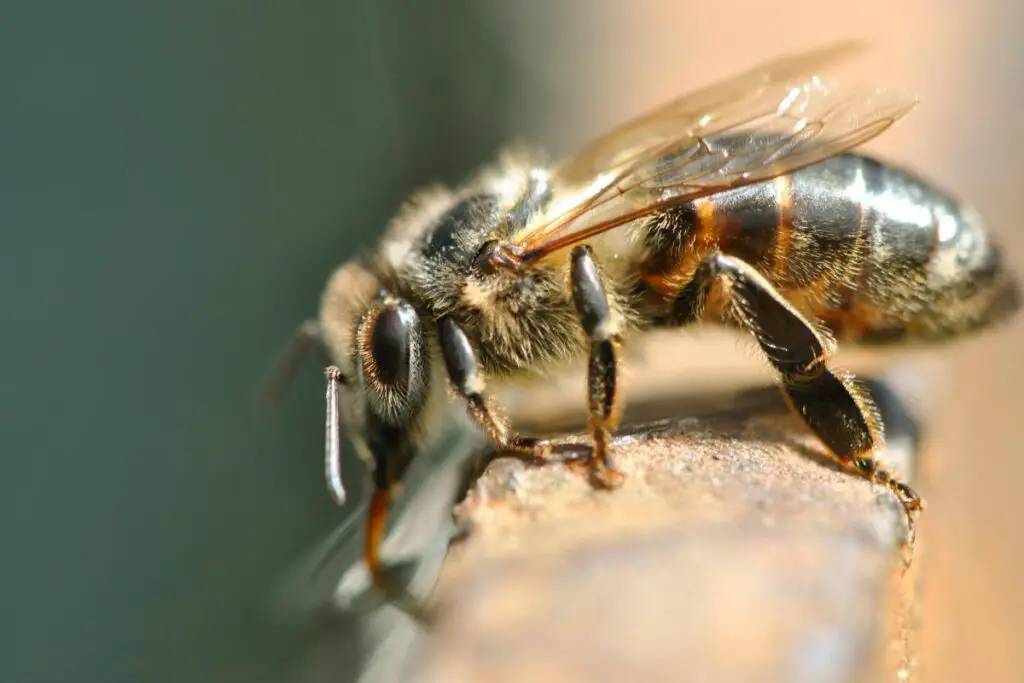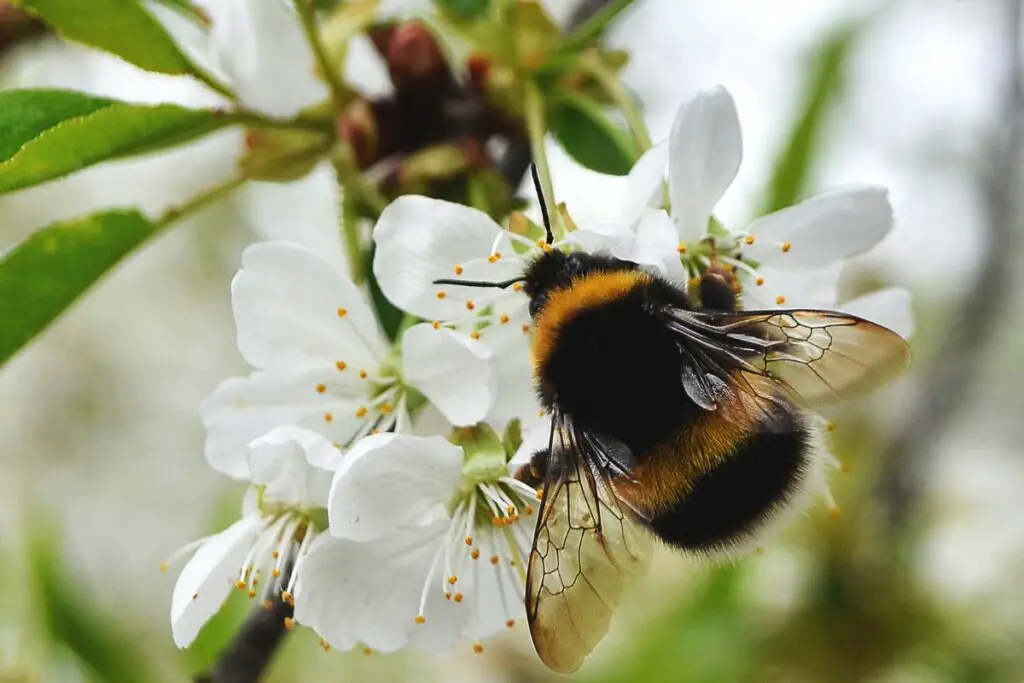Last updated on January 19th, 2024 at 04:24 pm
No, you won’t build a lifelong friendship with a bee you’ve just met. But beekeepers form a sort of bond with their bees, which is incredible.
So how do these tiny insects work out one human from the other?
Let’s buzz into the world of bees to learn more about their amazing feats of perception and their bond with humans.
Are Bees Friendly?
Unless you’re a beekeeper, you won’t be forming any meaningful relationship with any bee. That’s not to say that it won’t feel like it, but the feeling won’t be returned.
Insects aren’t capable of forming bonds with any other animal in the sense that we do. They don’t have the mental capacity or the need.
A bee’s sole focus is visiting flowers to collect nectar and pollen to support the rest of the nest or hive. It’s still a lovely thought, and it would be a better world if humans and bees could form friendships.
do bees like humans?
No, the little bees we care so much about can’t return the favour, but that doesn’t mean we should stop.
Humanising bees can help us empathise with their plight and take action to protect them.
Without bees that effectively pollinate millions of flowers and crops every day, we would have a sudden collapse in food sources, leading to a global famine and untold damage to the planet.
But when it comes to beekeeping, the story is a bit different. Studies have shown that honey bees have an incredible technique that we had no idea about.
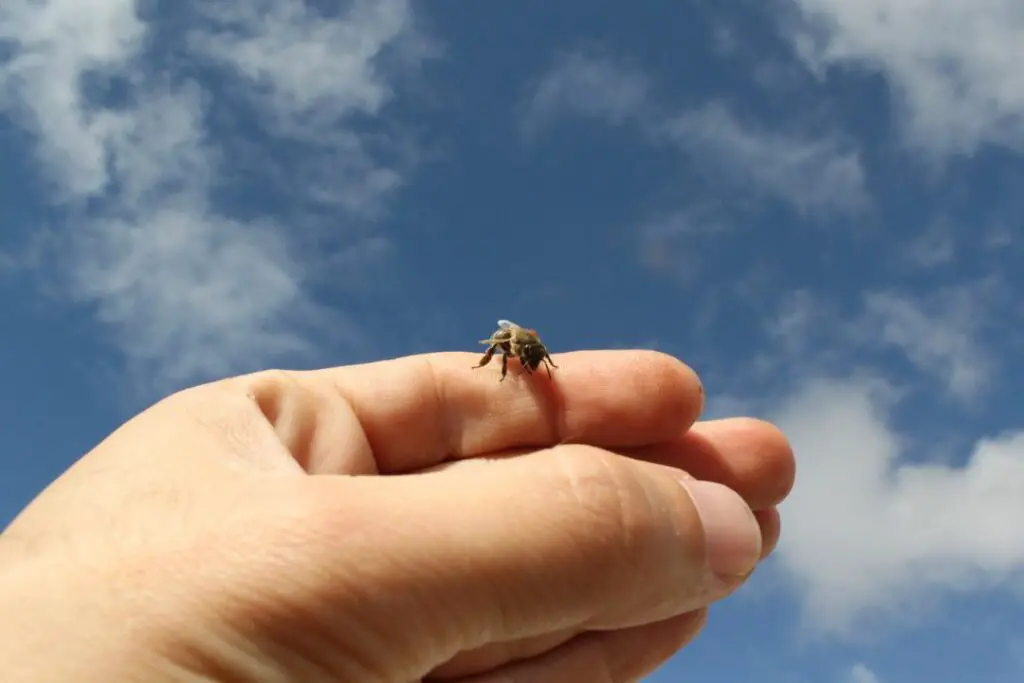
How Do Bees Bond With Their Beekeepers?
Despite having minuscule brains compared to us, bees and humans can form a sort of bond, but not in the way we do with other humans.
Beekeepers need to interact with their hives regularly; many do it without receiving a single sting.
But why do the bees stay calmer than they would if it was any other predator?
Well, bees remember us and get used to our presence over time. And it’s not scent. Scientists have shown that bees can pick up on visual patterns indicating a food source, which extends to humans.
While a colony might be aggressive initially, it will quickly work out the keeper isn’t a threat and start to lower their defences.
This is especially true during the winter periods when keepers feed their bees sugar syrup to help them through the long, sparse winter.
How scientists established a visual bond
The test is ingenious, and the results are startling. Scientists began by pinning four photographs of people’s faces in different room parts.
One photograph (the target) had sugar syrup placed on it, while the other three were left bare.
Even after the sugar syrup was removed, the bees consistently flew to the target 90% of the time.
And to make it even more impressive, they continued this behaviour for two days, consistently returning to the target despite a lack of reward.
You can read more about the entire study and how it was carried out here.
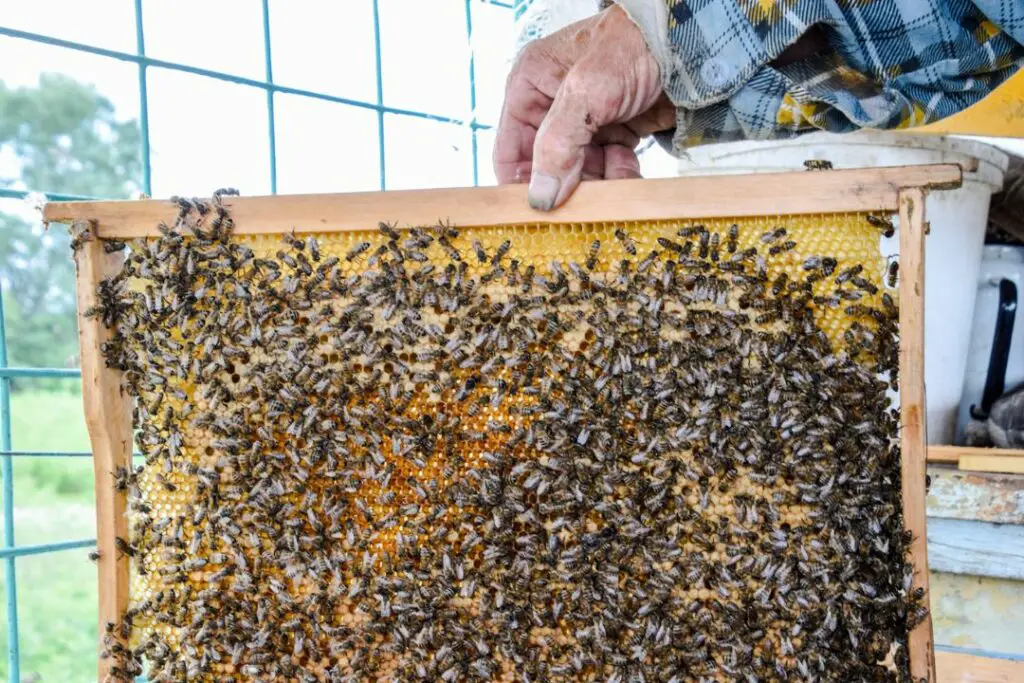
Can Any Insects Form A Bond With Humans?
When we think of animals forming bonds with humans, our minds often drift to heartwarming tales of dogs, cats, or even larger mammals like elephants and dolphins. But insects?
The idea might seem a bit far-fetched at first.
But, the world of insects is vast and diverse, and their interactions with humans can be more profound than one might initially think.
The Nature of Insect Cognition
Due to their small brain size, they were once believed to operate almost entirely on instinct. But recent studies, just like the one we’ve discussed, have begun to challenge this notion.
- Honeybees have demonstrated the ability to recognize human faces in some experiments. They can also learn, remember, and even teach other bees about food sources through their intricate “waggle dance.”
- Ants showcase complex social behaviours, problem-solving skills, and the ability to learn from their mistakes.
- Praying mantises have been observed to recognize their human caregivers, showing less aggression towards them over time.
Personal Bonds: Anecdotes and Observations
While scientific studies provide insights, personal anecdotes from insect enthusiasts and researchers often paint a more vivid picture:
- Stick insects and cockroaches, especially those kept as pets, have been reported to recognize their human caregivers. They might crawl onto a familiar hand without hesitation while being more wary of strangers.
- Butterflies have been observed landing on humans and displaying a sense of trust or curiosity. This behaviour, while not necessarily a “bond,” indicates comfort and the ability to build trust with their human guardians.
Setting Realistic Expectations
It’s essential to approach the idea of “bonding” with insects with a grain of salt. Unlike mammals, which have evolved alongside humans and have a long history of domestication, insects operate on a different wavelength.
Their “bonding” might not be rooted in affection or love as we understand it but rather in trust, recognition, or, more simply, a learned behaviour.
In Conclusion
While the bond between bees and humans might not mirror the deep emotional connections we form with larger animals, it’s undeniable that these tiny creatures can recognize, learn from, and even trust us to some extent.
As we continue to study bee cognition and behaviour, we’ll likely uncover even more fascinating insights into our relationship with the smallest members of the animal kingdom.
Looking for more eye-opening insights into the world of bees and pollinators? Head over to our guide on can bees swim or pick from one of our many other great reads below.

